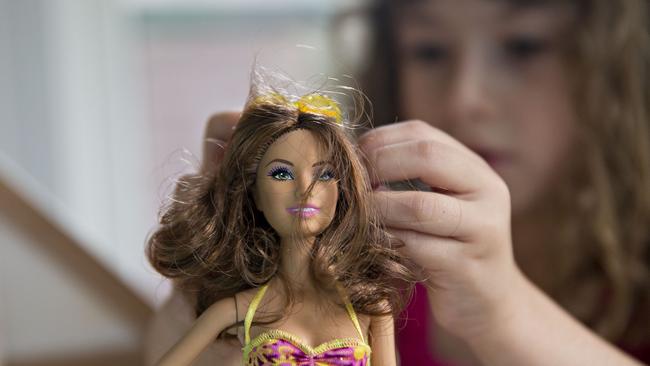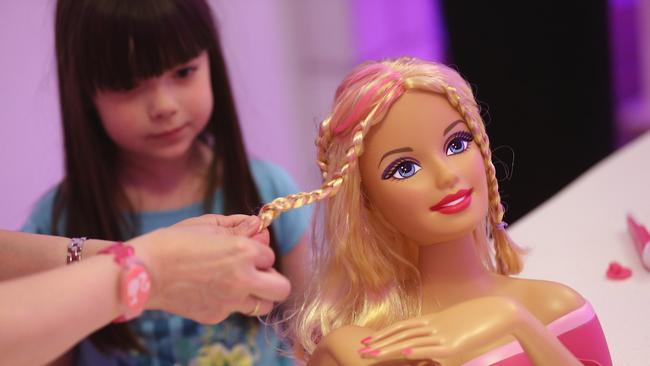Girls who play with unrealistic thin dolls are more likely to have body image issues, study says
A new study adds to a body of evidence showing how young girls are negatively impacted by exposure to dolls that represent an unrealistic body image.

Kids
Don't miss out on the headlines from Kids. Followed categories will be added to My News.
Young girls who play with unrealistically thin dolls could end up with warped body image issues that could lead to eating disorders, according to a new study.
Researchers observed a group of 30 young girls aged between five and nine in the United Kingdom as they played with dolls with different body types, either unrealistically ultrathin or realistic childlike dolls.
The girls were asked about their perceived and ideal body sizes using computer images before playing with the dolls for five minutes and then answered the same body image questions.
RELATED: Mattel launches gender neutral dolls
RELATED: There’s only grief in keeping up with the Kardashians

RELATED: How Olivia Deeble beat her body image issues
The girls who played with the ultrathin dolls were more likely to want thin bodies, according to the study published in the Body Image journal.
The children’s ideal-self body mass index reduced significantly after playing with the ultrathin dolls, but had no significant change if they played with the realistic childlike dolls.
The ultrathin dolls represent unrealistic thin ideals which could potentially lead to long-term body dissatisfaction in young girls, the study’s author Lynda Boothroyd, a professor and director of research at the department of psychology at Durham University in the UK, explained.

“Body dissatisfaction in childhood can persist into adolescence and later on,” she said, adding that this can contribute to fluctuating weight and eating disorders.
The study adds to the body of evidence showing how young girls can be negatively impacted by exposure to dolls that depict unrealistic female body image.
While the study results didn’t surprise the professor because she’d seen other studies about how doll size can alter body ideals, Professor Boothroyd said “it gave me quite an emotional lurch to see the results on screen”.
Body dissatisfaction can be a precursor for other negative consequences, professor of psychology at Rutgers University in New Jersey, Charlotte Markey, who was not involved in the study, explained to 7News.
“Body image isn’t just a superficial concern, it’s associated with people’s mental health in general,” Professor Markey said.
Professor Markey said she had a “no Barbie rule” when her daughter was younger and when she would ask why she couldn’t have a Barbie doll, her mother explained the reasons to her.
Professor Markey said talking about body image with children at a young age “can have lasting positive consequences”.
Originally published as Girls who play with unrealistic thin dolls are more likely to have body image issues, study says

